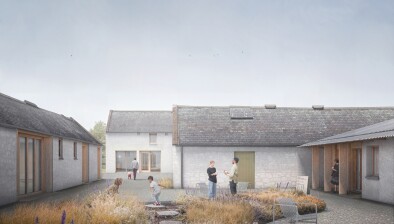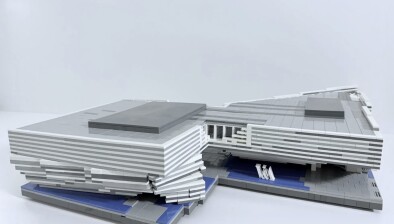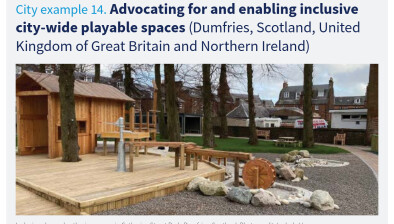And finally… plot twist

Over a century ago, a wealthy widow with citizenship in both the United States and Canada commissioned a unique building to celebrate the bond between the two nations.
The result was the Haskell Free Library and Opera House, an elegant grey granite structure with stained glass, intricate woodwork, and soaring cherubs, deliberately constructed to straddle the border between Stanstead, Quebec, and Derby Line, Vermont.
Inside, a black line runs along the floor, marking the exact international boundary. For generations, this line symbolised unity rather than division — a rare place where Canadians and Americans mingled freely under one roof.
But times have changed.
Tensions under US President Donald Trump, including threats to annexe Canada and the imposition of tariffs, strained diplomatic relations. His rhetoric reached even this quiet cross-border community, symbolised when one of his envoys visited the library, jokingly stepping over the tape and declaring, “51st state… US.”
This shift in attitude has had real consequences.
In March, US authorities announced new restrictions, citing security risks and past instances of smuggling. As of October, Canadians will no longer be allowed to walk directly to the library’s main entrance, which is located on US soil, without first reporting to a nearby official border crossing and presenting a passport, reports the Chattanooga Times Free Press.
For decades, this wasn’t necessary. Canadians simply strolled down a sidewalk beside the library to enter, no border check required. Now, that long-standing tradition of open access is coming to an end.
The Haskell Library, established in 1904 by Martha Stewart Haskell, was intentionally placed to serve both nations equally. Now, it stands as a powerful reminder of changing times – and the growing divide between two once-intertwined communities.

















